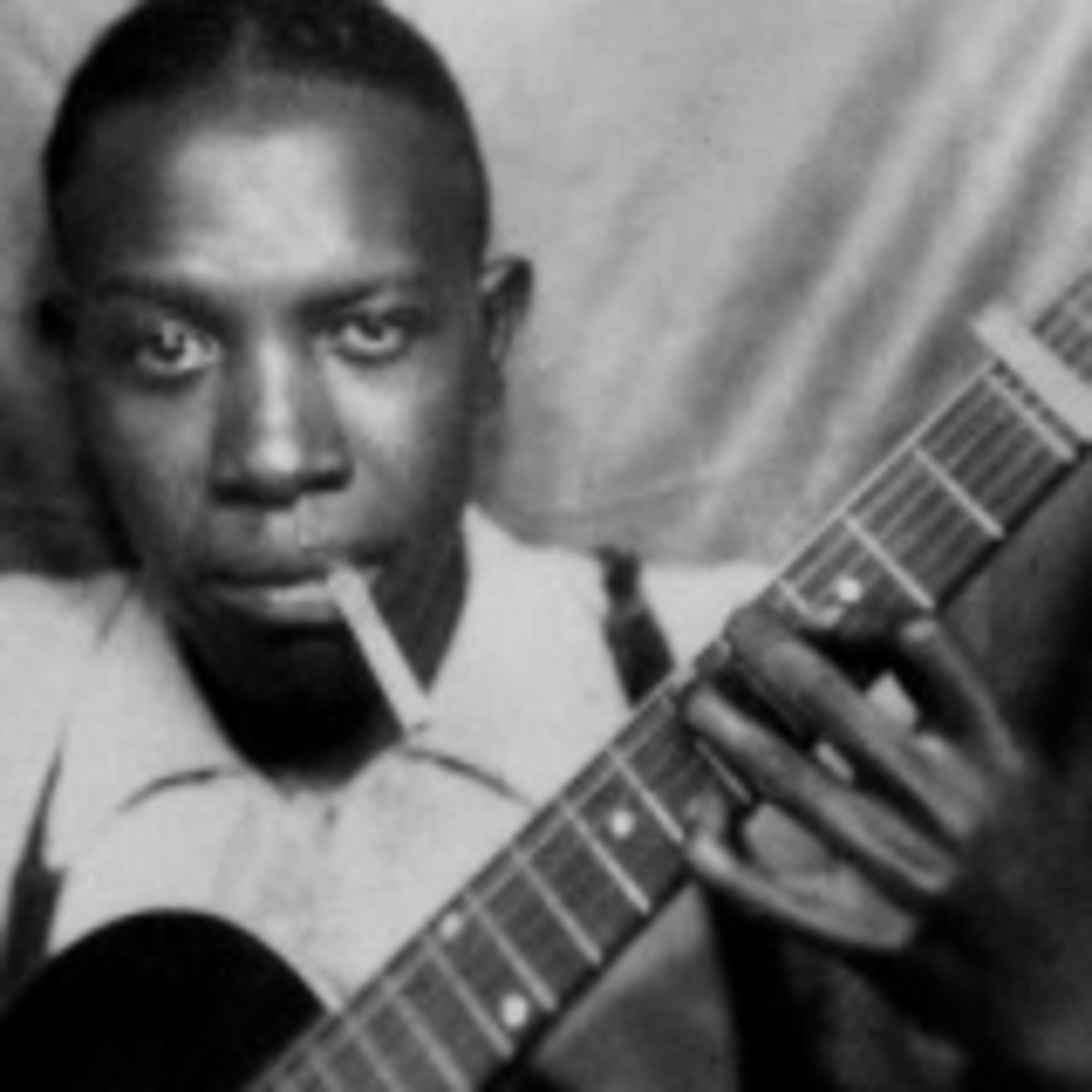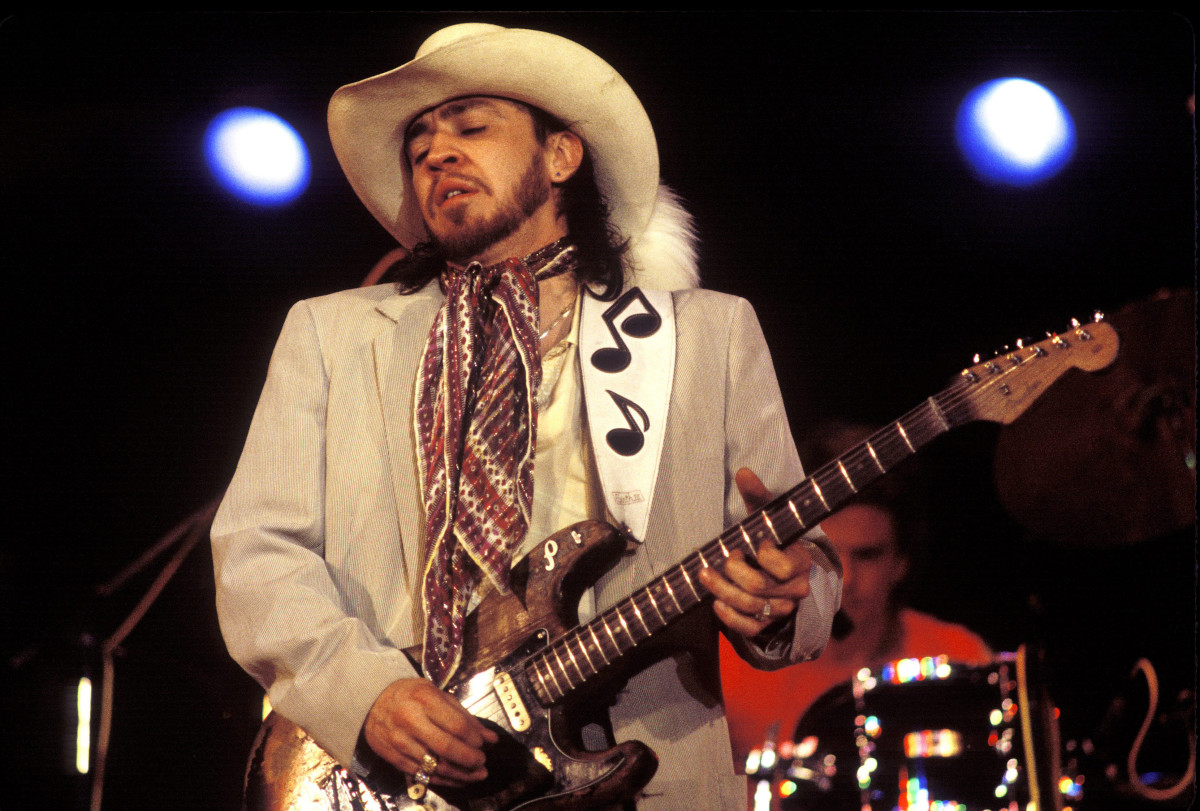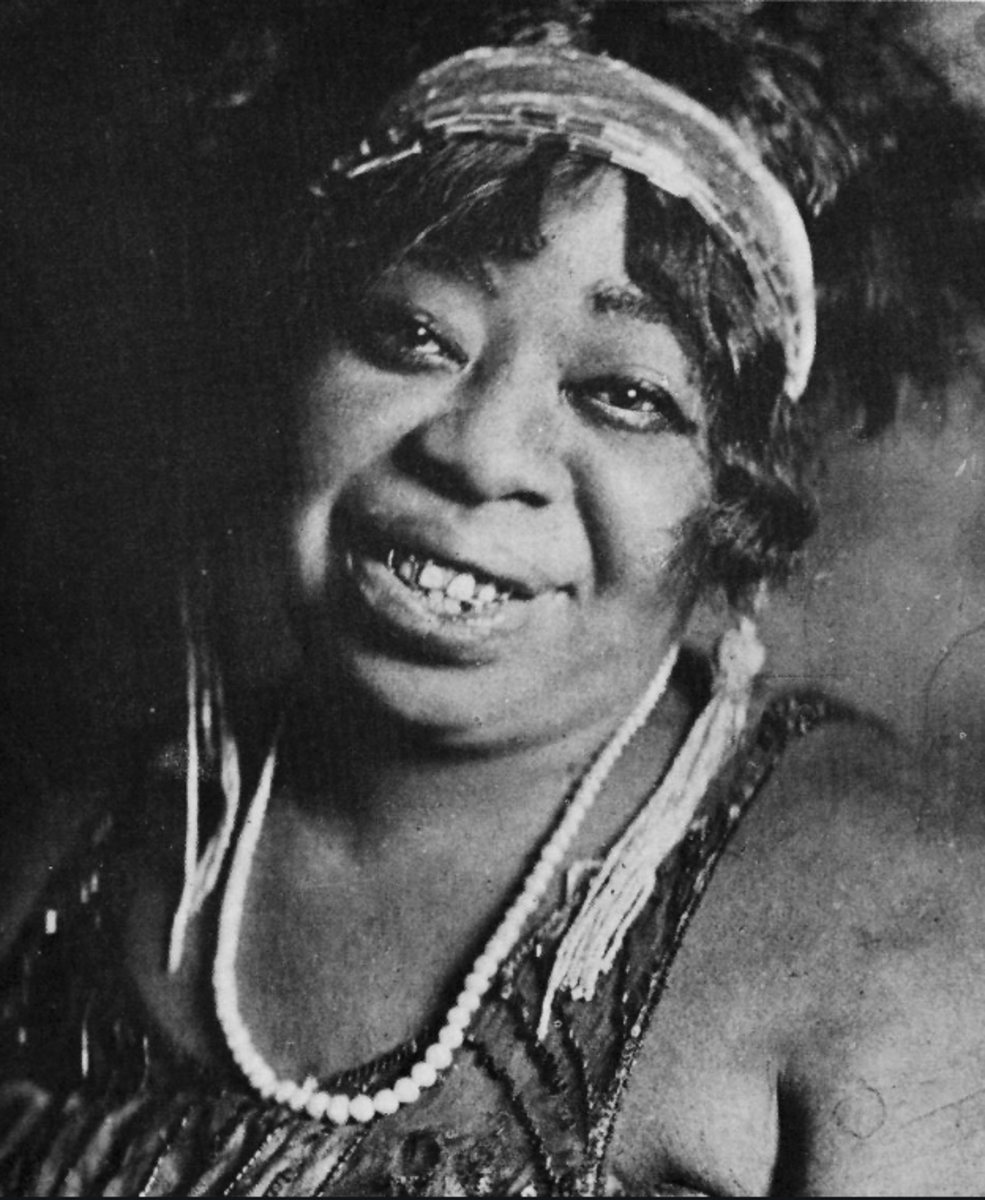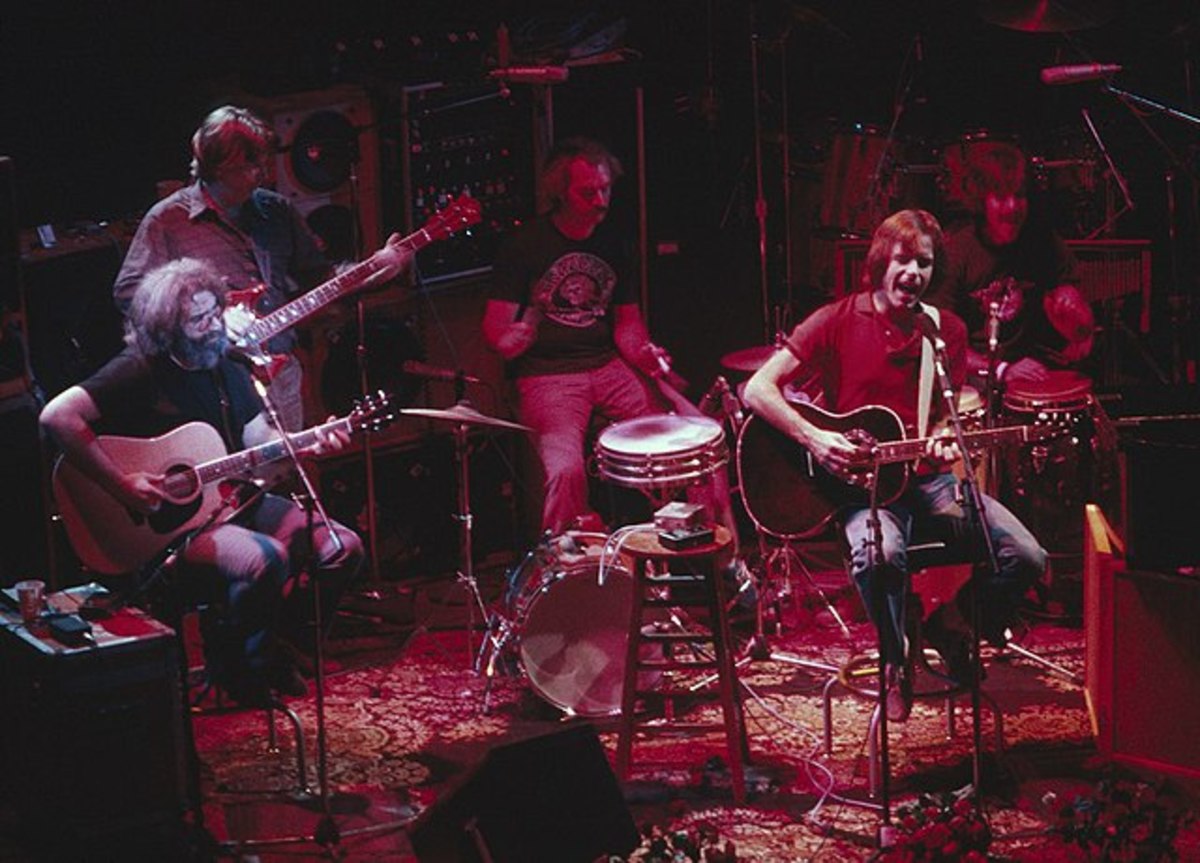Crossroads: The Story of Delta Blues Legend Robert Johnson (As Told By Robert Johnson)
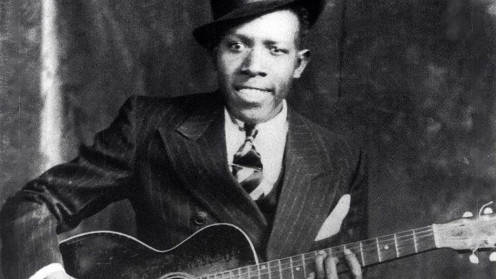
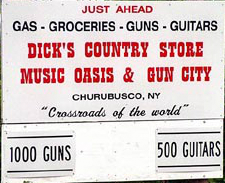
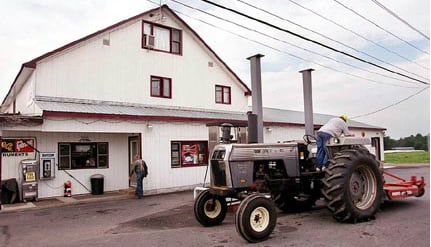
The Joke's On Me
I still remember the first time I heard a Crossroads joke. I was fairly young at the time, 16 or 17 at the oldest, and had just made a purchase at the awesome Dick's Country Store, my then favorite guitar store in upstate New York. The employee behind the counter asked a simple enough question that I'd later learn to dread for years to come: "What's your name?" With pen poised above the hand-written receipt, patiently awaiting my response, I had no idea what I was getting myself into.
"Robert Johnson," I acknowledged.
With a grin and a little laugh, he made the most nonsensical comment I'd ever heard in my life: "Been down to the crossroads lately?" He laughed at what he thought must have been a clever joke, as I took my bag and went home.
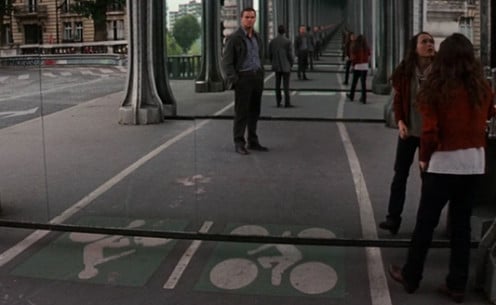
The Joke's On You
It didn't take long for the second Crossroads joke to emerge from the exact same scenario as before. Every time I walked into a guitar store to buy an item, there was always the inevitable Crossroads joke waiting for me. Eventually I would subconsciously hesitate before giving my name, wondering if I should say "Robert Jones" or use my middle name instead. I lost count of how many times the same comedy played out after two years or so, each joke the same as the last, like an image reflected in two mirrors facing each other.
I came to realize rather quickly that each individual who told the same Crossroads joke actually believed in their heart of hearts that they were telling an original and funny joke, unaware that I had heard the same words uttered hundreds of times through the years. At a certain point in time, it became as routine as any standard greeting between friends. My role was to smile, laugh and say something along the lines of, "You've got me pegged, buddy!"
Eventually, shortly after my 20th birthday, I applied to Guitar Center and literally conducted the interview with a life-sized portrait of Robert Johnson himself staring down at me from behind the manager's desk. Maybe it was fate. Maybe it actually was me. More than likely it was the blues man himself pulling some strings as I was offered the job right away.
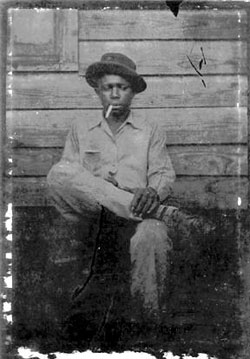
Getting To Know You
The sad truth was it took me quite a while to actually sit down and figure out who Robert Johnson really was. I knew he was some sort of legendary or mythological bluesman from the 1930s who had a run in with Satan himself, but that was all I knew. Why would I care about a musician from that long ago anyway? As it turned out, I had plenty of reason to get to know the singer/songwriter who Eric Clapton called "the most important blues singer that ever lived."
Born in 1911 and prematurely dead by the age of 27, Robert Johnson's life is a story of racism, heartbreak and a struggle to be recognized- something he would never achieve during his lifetime. Never settling in one place for very long, he was apparently blessed with a talent for the harmonica and cursed on the guitar. Being proficient on the guitar was a desire Johnson had for most of his life but was never able to claim on his own, common knowledge to his friends and neighbors growing up.
In the last year of the 1920s, Robert Johnson married his first wife, a girl of 16 named Virginia Travis. Johnson's first run-in with claims of him being cursed happened shortly after the marriage. Virginia died in childbirth and the reason was obvious to those around him: Johnson must have sold his soul to the devil. After all, he was fond of playing secular music.
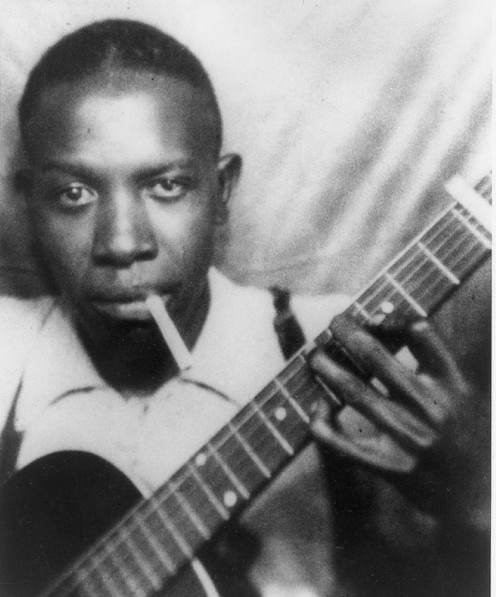
Hellhound on His Trail
Stories of selling his soul to the devil were never in short supply when it came to Robert Johnson. Picking up and moving on shortly after the death of his wife, Johnson traveled around the South and settled in a town near his birthplace in Mississippi. Running into a few noted blues guitarists, he studied their method and learned rather quickly under their tutelage. One of his teachers, Ike Zinnerman, was particularly notorious for the rumors surrounding him. He had apparently learned to play guitar from sitting overnight in cemeteries, learning the secrets of the dead and from the devil himself.
With his guitar skills nicely improved, Johnson once again picked up and headed back to where old friends and family knew him well. With a new-found proficiency on the six string instrument, there was only one explanation that made any sense whatsoever: Robert Johnson, once again, must have sold his soul to the devil.
The Crossroads
Johnson did end up married again but not for very long. After about a year of marriage, he picked up and decided it was his fate to travel around the country playing music. Making it as far North as Canada and as far West as Texas, Johnson rarely stayed in one place for very long. Music was in his blood, in his heart and it's what kept his feet walking one step further. Small towns, big cities, just about every crossroads in the midwest was traversed by the bluesman in the decade that was the 1930s.
While he had many original songs, like most struggling musicians, he normally had to delve into popular music in order to survive. Never in his own day was he considered famous, so in order to make a living he'd listen to what the latest music trends were and play those songs for the crowds on street corners. If he was considered famous in his time, it was not for his blues genius (as it is today) but his ability to play a variety of styles well. Johnson was apparently the consummate performer, a passerby that made friends wherever he went and left behind many brokenhearted female admires in his wake as well.
About two years before Robert Johnson's death, he finally made it into a Mississippi recording studio to forever etch the first batch of his personal songs into the annals of music history. He later traveled to Texas and recorded another thirteen songs in San Antonio and Dallas. All in all, 29 songs were captured of the great blues singer/songwriter, some of which made it all the way to the East coast of the U.S.
Shortly before his death in 1938, Robert Johnson seemed to have reached the pinnacle of his short life. Columbia Records producer John Hammond booked him to play a rather large event at Carnegie Hall in New York City. Johnson would die before ever taking the stage, seemingly poisoned by a lover's jealous boyfriend.
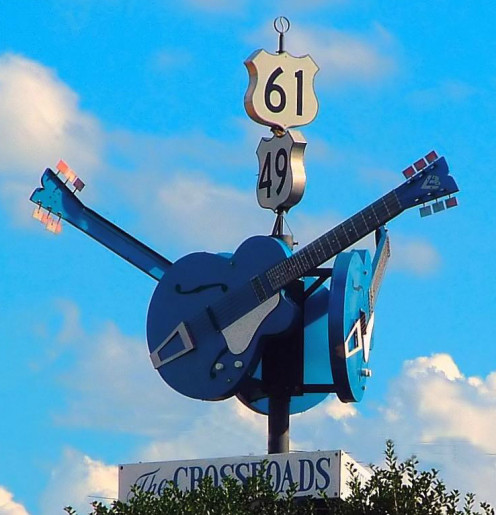
The Deal With the Devil
Most who know the story or Robert Johnson have heard a rather different tale, or tales to be exact. Legend has it that Johnson, in order to learn the guitar, was willing to sell his soul to the devil in exchange for musical skill. Heading down to a crossroads, Johnson met the devil himself at midnight- who played a few songs on Johnson's guitar- thus instilling within him the knowledge to play the guitar. Those familiar with the German legend of Faust will find stunning similarities between these two stories.
Another legend has it that Johnson learned his skill while sitting overnight in a cemetery, a story that mirrors that of his guitar instructor Ike Zinnerman. According to friends and family of Zinnerman, the stories of practicing in cemeteries were apparently true, but for unexpected reasons: the graveyards were so calm, quiet and deserted, they made for great places to practice.
His Legacy

His Legacy
As stated previously, Robert Johnson never reached fame in his short life. It wasn't until 1961, with the release of his collected works in King of the Delta Blues Singers that his notoriety began to blossom. Artists such as The Rolling Stones, Cream and Led Zeppelin were early musicians that proclaimed his genius with cover versions of his songs and vocal praise otherwise.
In 1986 the movie Crossroads, starring Ralph Macchio, was released and tells a story of a classical guitarist (Macchio) who learns the story of Robert Johnson and goes on a quest to discover the missing 30th song of the blues guitarist.
1990 saw a Grammy posthumously awarded to Johnson for The Complete Recordings, another reissue of his 29 songs. In 2006 he also earned the Lifetime Achievement Award Grammy.
While many covers and tribute albums have been released through the decades in honor of Johnson's contributions, the most famous in recent memory was Eric Clapton's Me and Mr. Johnson, an entire album composed of Robert Johnson classics. Clapton also founded the Crossroads Guitar Festival, a large music event with dozens of legendary guitar players, that helps benefit a drug treatment center in the Caribbean.
Gibson Guitars released a signature model known as the Robert Johnson L-1 to similar specs as the original 1926 model Johnson himself preferred.
Topping all others in uniqueness, a Japanese manga entitled Me and the Devil Blues was released in 2008, chronicling the legend of Robert Johnson.

Not In Vain
It's easy for we as humans to be shortsighted. We see the fruits of our labor- many times a smaller harvest than anticipated- and wonder what's the point. I'm sure Robert Johnson felt much the same way as he traversed the country playing street corners for pocket change. Regardless of how he felt, he took the time to plant the seeds of his genius and today, more than 75 years after his death, his legacy still lives on. While the "known" Robert Johnson may be distorted beyond who the actual blues genius truly was, it's safe to say the miles he walked, the crossroads he passed and the corners he entertained on were hours, days, weeks and years spent not in vain.
© 2013 Robert Allen Johnson



